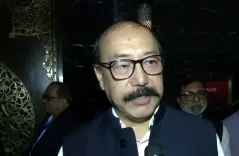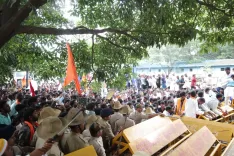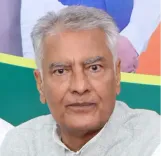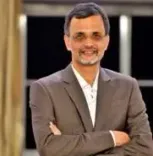Pawan Bansal: BJP's Attempt to Alter Constitution vs Rahul Gandhi's Defense
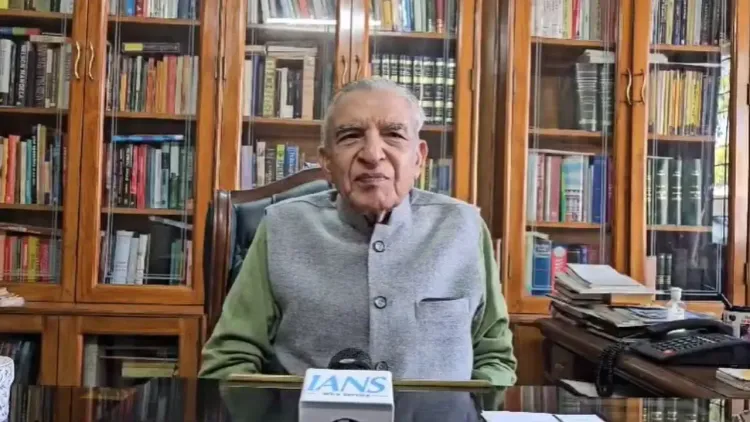
Chandigarh, Dec 12 (NationPress) In light of the BJP's accusations against the Leader of Opposition in the Lok Sabha, Rahul Gandhi, for allegedly disrespecting the Indian Constitution, Pawan Bansal, a former Union Minister and prominent Congress figure, challenged these assertions on Thursday. He reminded the public that during their second term, the BJP had openly considered revising the Constitution if they achieved a majority of over 400 seats.
The BJP has persistently claimed that the Congress party does not honor the Indian Constitution, even though the Leader of Opposition is often seen carrying a copy of it.
In a conversation with IANS, Bansal stated, "When the Constitution was created, extensive discussions were held by the Constituent Assembly on every detail, keeping in mind the feelings of the Indian populace, our traditions, and our future.
A draft was formulated that incorporated a statement of aims and objectives presented by Pandit Jawaharlal Nehru, which later became the Preamble. This enshrined principles such as secularism, inclusivity, individual rights, and freedom.
Bansal added, "Now, when they assert that Rahul Gandhi does not respect the Constitution, despite his constant presence with it, they overlook the fact that during their past term, some BJP representatives openly discussed altering the Constitution.
"The BJP sought to reinterpret it to align with Hindutva. It is critical to understand that Hindutva is not synonymous with Hinduism. I proudly identify as a Hindu, but it’s important to recognize that Hindutva serves as a political instrument rather than a faith. A political framework that exploits religion for its ambitions and seeks to modify the Constitution accordingly is a grave concern.
"India is unable to advance under a 'Hindu Rashtra' ideology. The nation can only flourish if it upholds secularism, granting equal respect and standing to all religious communities.
Bansal also referenced the late Prime Minister Indira Gandhi's amendments to the Constitution, which incorporated terms such as 'secular' and 'democratic'—values that were central to the spirit of the Constitution's formation.
"Indira Gandhi's amendments embodied the vision articulated during the Constituent Assembly discussions. Modifying the Constitution is one thing, but dismantling its core to construct an entirely new one is a different matter that must be grasped," he emphasized.
Bansal expressed apprehensions regarding the current condition of India's democratic institutions.
"Today, we witness either direct or indirect assaults on the Constitution. Our democratic institutions are facing erosion. For the first time, we observe a High Court judge participating in a Vishva Hindu Parishad conference and making statements there.
Furthermore, the Vice President of the nation has remained mute on these matters. When such figures choose silence or act in ways that favor party agendas, our Constitution is at risk. Major institutions are in jeopardy, and this is a significant concern. Rahul Gandhi consistently highlights the importance of safeguarding the Constitution," Bansal asserted.
Regarding the Supreme Court's ruling on the Places of Worship (Special Provisions) Act, 1991, Bansal remarked, "While I hold the Supreme Court’s judgment in high regard, I feel compelled to share my perspective. This legislation was enacted to settle various public debates regarding the status of religious sites—whether temples were converted into mosques or vice versa. The law was designed to ensure that, aside from the Ram Janmabhoomi case, all places of worship maintain their status as of August 15, 1947. This law aims to promote progress, not regression, and seeks to preserve religious sites as they are.
He further stated, "The law fosters respect for the status of religious locations, ensuring they remain intact. This is vital for upholding national unity. Instead of inciting religious divides for political advantage, as some RSS leaders have suggested by proposing the search for Shiva temples in mosques, we should prioritize constructing magnificent temples and honoring all religious sites equally. We must refrain from manipulating religion for electoral politics and aim for a united and robust nation.
Bansal reiterated, "Such divisive politics undermines the nation, and we should concentrate on fortifying our country by respecting all faiths and adhering to the values enshrined in our Constitution."

